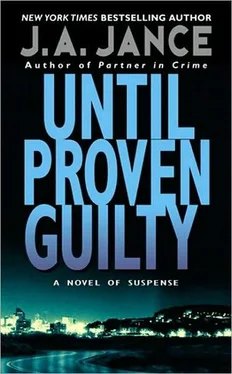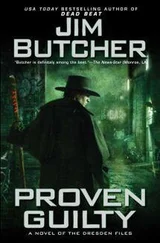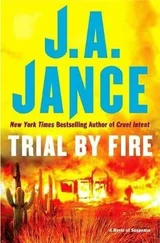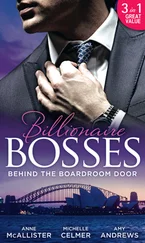J. Jance - Until Proven Guilty
Здесь есть возможность читать онлайн «J. Jance - Until Proven Guilty» весь текст электронной книги совершенно бесплатно (целиком полную версию без сокращений). В некоторых случаях можно слушать аудио, скачать через торрент в формате fb2 и присутствует краткое содержание. Жанр: Детектив, на английском языке. Описание произведения, (предисловие) а так же отзывы посетителей доступны на портале библиотеки ЛибКат.
- Название:Until Proven Guilty
- Автор:
- Жанр:
- Год:неизвестен
- ISBN:нет данных
- Рейтинг книги:4 / 5. Голосов: 1
-
Избранное:Добавить в избранное
- Отзывы:
-
Ваша оценка:
- 80
- 1
- 2
- 3
- 4
- 5
Until Proven Guilty: краткое содержание, описание и аннотация
Предлагаем к чтению аннотацию, описание, краткое содержание или предисловие (зависит от того, что написал сам автор книги «Until Proven Guilty»). Если вы не нашли необходимую информацию о книге — напишите в комментариях, мы постараемся отыскать её.
Until Proven Guilty — читать онлайн бесплатно полную книгу (весь текст) целиком
Ниже представлен текст книги, разбитый по страницам. Система сохранения места последней прочитанной страницы, позволяет с удобством читать онлайн бесплатно книгу «Until Proven Guilty», без необходимости каждый раз заново искать на чём Вы остановились. Поставьте закладку, и сможете в любой момент перейти на страницу, на которой закончили чтение.
Интервал:
Закладка:
“Here you are, Miss Corley,” Hamilton was saying as he led her to my desk.
“Thank you very much, Arlo,” Anne responded graciously. “I appreciate your help.”
“Think nothing of it. The pleasure was all mine.” Hamilton looked at me. “I was giving her some information for her book,” he explained. “Of course, you know all about that.”
“Yes,” I said. I did know about the book. “How’s it going?” I asked.
She smiled. “Fine. Arlo here has been a world of help.”
Anne sat down on a chair beside my desk. For a few moments Hamilton wavered, uncertain whether to go or stay. Finally he made the right choice and left. Anne was wearing a navy blue suit with an innocently ruffled blouse and a daring slit up one side of the skirt. When she crossed her legs, the skirt fell away, revealing a length of well-formed thigh. A few more heads waggled in our direction. The boots she had worn the day before had obscured two of Anne Corley’s most notable assets.
“Hello, Beau,” she said. Elbows propped on the arms of the chair, she rested her chin on clasped fingers and regarded me with a level, gray-eyed appraisal. “You’ve been busy.”
“Peters and I have had our hands full,” I admitted. “Have you had lunch yet?”
She shook her head. I hurried to my feet in hopes I could spirit her out of the building before Peters returned from his debriefing. It didn’t work. He caught us in the elevator lobby. There wasn’t much I could do but invite him to join us. I’d as soon have bit my tongue, and I could have belted him for not saying a polite no-thank-you. Now I owed him two.
It was still misting out. We walked to a little Italian place in Pioneer Square. Anne was able to talk enzymes knowledgeably enough even though she didn’t seem particularly prone to eat them. As a dedicated processor of junk food, I couldn’t hold my own in that conversation. She and Peters hit it off, making me more than a little resentful. I was also painfully aware that he was much closer in age to Anne than I was. They chatted amiably and laughed, while I did a slow burn through lunch that had nothing to do with indigestion. Peters was the life of the party. I wanted to choke him.
Toward the end of the meal, he leaned back in his chair and said, “Beau says you’re working on a book?” I had made the mistake of mentioning it to him.
Anne gave Peters a clear-eyed look that nonetheless put distance between them. “I come at this through the eyes of the victims. That’s the name of my book, Victims. How do children become victims, and what happens to them or their families afterward? I had some personal experiences with that sort of thing in my own family. I’ve made a lifelong study of it.”
“You make it sound as though you’ve been working on this book for quite a while.”
“I have,” Anne said. “All over the country.”
“Making any money at it?” Peters asked. There was a classic cut to her clothing, elegant and expensive. They spoke of style as well as money.
Anne laughed, easily, comfortably. “If I were in it for the money, I’d have quit a long time ago. No, it’s strictly a labor of love.” The laughter disappeared from her face. She regarded Peters seriously. “Why do you think Angela Barstogi is dead?”
Peters shrugged. “No logical reason; she just is.”
The light dawned slowly. I’m not a fast learner. Hearing Anne questioning Peters about the case, I realized that I had been nothing more to Anne Corely than part of her pet research project. It was an ego-bruising realization. I reached for the check, ignoring the fact that neither Anne’s nor Peters’ coffee cup was empty.
I walked too fast, making it difficult for Anne to keep up. Let her dawdle along with Peters, I fumed. She probably had a whole string of questions to ask him. As for me, I had better things to do with my time than answer questions for some half-baked author. I felt suckered, used. I squirmed a little too. I remembered the previous evening’s dinnertime topic. I had shot my mouth off royally, all the time thinking Anne Corley was interested in me when in fact she had only been fishing for information. It would have been easier for me to handle if I had been a rookie. No veteran cop should have been so stupid.
Peters and Anne caught up with me in the elevator lobby on the first floor. Peters excused himself because he had to run an errand. I waited for the notoriously slow elevators, fervently wishing one would come quickly so I could escape Anne Corley’s quizzical look.
“Are you angry?” she asked, her question unnervingly direct.
“No,” I said quickly, defensively. “Of course not. Why should I be?”
“But you are,” she replied.
A bell rang and a door opened. People filed into an elevator, but I didn’t. “Yes,” I admitted at last. “You’re right. I am angry.”
“Why?” she asked.
“It’s a long story,” I answered. “I thought you were…Well, I mean I…”
“Why aren’t you listed in the phone book?” she asked. “I changed my mind about the drink after I dropped you off, but there was no way to call you.”
“I’m a homicide detective. We don’t have listed numbers.” I felt a momentary flash of pleasure that she had tried to call me, but then I remembered her subterfuge and was angry all over again. Another elevator showed up, and I made as if to get on it. She put one hand on my wrist. Her touch nailed my feet to the lobby floor.
“I’m not here about the Barstogi case, Beau,” she said. “I came because I wanted to see you.”
“Come on, Anne, there’s no fool like an old fool. I’ve been saying that to myself all day. If you want to ask questions, do it aboveboard. Don’t play games.”
“Will you meet me after work?” she asked.
“Do you want me to bring Peters? We’re both working the case.” I couldn’t resist a dig.
She responded in kind. “Bring a chaperone if you want, but that wasn’t what I had in mind.”
I swallowed the bait like a starving mackerel. “Where?” I asked.
“Meet me in the lobby of the Four Seasons,” she said. “We can have a drink there. About five-thirty.”
She turned and walked away. I missed the next elevator fair and square. In fact, I might have stood in the lobby for the rest of the afternoon if Peters hadn’t come through and dragged me back to the fifth floor.
The phone on my desk was ringing. “Hello, J. P.” Maxwell Cole said. “You didn’t return my call.”
“You noticed,” I observed dryly. “You know I can’t talk to you directly. Lay off it.”
“Who is she? The car is owned by a law firm in Phoenix, Arizona, and they won’t tell me anything.”
“I won’t tell you anything either, Max. You’re barking up the wrong tree.”
“Come on, give. You left with her.”
“It was stricly social, I can assure you. Had nothing to do with the case, if that’s what you’re getting at.”
“If it was strictly social as you say, tell me who she is.”
“Go piss up a rope, Maxey,” I told him, and I hung up.
The sole advantage of going to lunch at two-fifteen is there’s not a whole hell of a lot of day left when you get back. Maxwell Cole had good sources. The Department of Motor Vehicles gave me the same information he had, the name of a law firm in Phoenix. I called and got a chilly reception from the lady who answered the phone. “Mr. Ames handles Mrs. Corley’s affairs,” she said, “but I have been instructed to give out no information.”
“This is a very serious matter,” I said. “I’m investigating a homicide.”
“Give me your name, then, and Mr. Ames will get back to you.”
“Don’t you want the number?”
“No. If you really work for the Seattle Police Department, we’ll be able to get your number through information.
Читать дальшеИнтервал:
Закладка:
Похожие книги на «Until Proven Guilty»
Представляем Вашему вниманию похожие книги на «Until Proven Guilty» списком для выбора. Мы отобрали схожую по названию и смыслу литературу в надежде предоставить читателям больше вариантов отыскать новые, интересные, ещё непрочитанные произведения.
Обсуждение, отзывы о книге «Until Proven Guilty» и просто собственные мнения читателей. Оставьте ваши комментарии, напишите, что Вы думаете о произведении, его смысле или главных героях. Укажите что конкретно понравилось, а что нет, и почему Вы так считаете.












